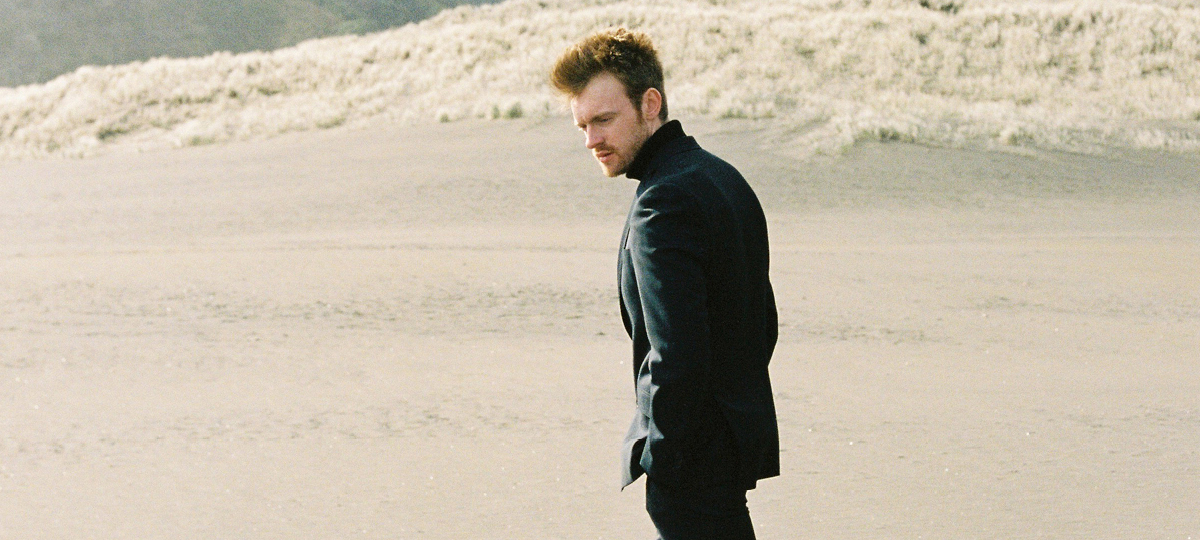
The first time I ever spoke to musical mastermind Finneas O’Connell (with only one solo song to his name thus far), seated in a gazebo at Auckland’s Albert Park back in September 2017, he told me very wisely that, “With my own project I wanted to make sure it felt like a cohesion. I feel like the most immediate way to do that was to be really honest, and to make sure that anything I was putting my own name behind was really authentic.”
Almost two years on from that fateful first meeting during a New Zealand covershoot with his sister Billie Eilish, and that ethos is evident in everything that O’Connell has a hand in - whether it’s the co-writing and production of the entirety of Eilish’s debut album ‘When We All Fall Asleep, Where Do We Go?’ (which reached #1 in over 15 countries, and has gone on to surpass over 8.5+ billion streams globally to date), or working with chart-topping artists like Camila Cabello, Sam Smith, or Lil Nas X, or in his own solo musical endeavours.
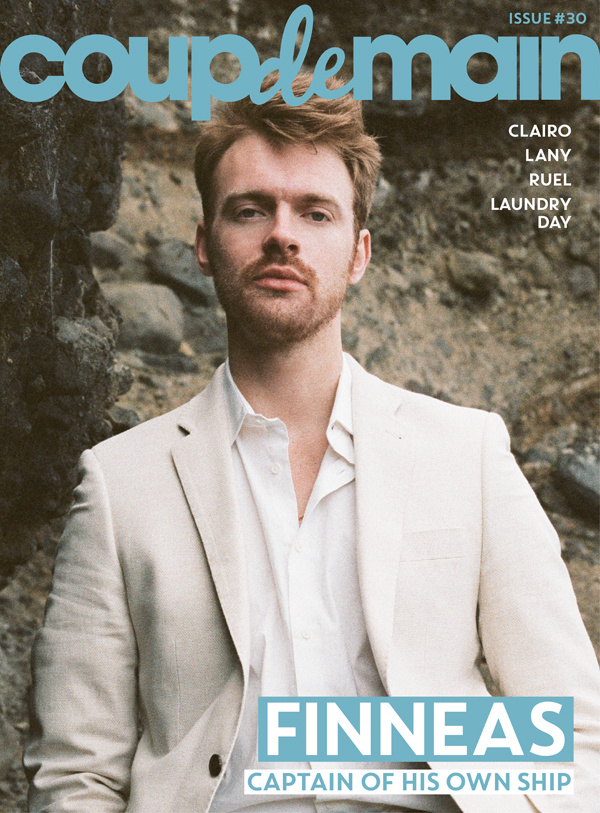
Click here to order a CDM x Finneas zine (i.e. a mini-magazine featuring photos + quotes from this cover-story).
Having released a string of his own singles steadily over the past few years, with fan-favourites like ‘I’m In Love Without You’ and ‘Break My Heart Again’ showcasing a vulnerability and rawness both lyrically and musically, O’Connell has recently announced his upcoming debut EP ‘Blood Harmony’ will be available this October - sharing ‘Shelter’ as the lead single from the upcoming release.
Entirely self-taught from a young age, O’Connell has been continually developing his signature sound steadily over the past few years, infusing his songs with sparse production, and proving that less is actually more. Though he’s aware his lyrical content is predominantly dealing with a common songwriting theme, he tells me that, "I think if you’re making something that is actually worth listening to, it has to be unique in some way. Mostly, I’m saying ‘I love you’ in my songs, and that’s not an incredibly unique thing to say - so I have to figure out a way to say it really uniquely.” It’s this perceptive self-awareness of his subject matter that makes any Finneas song feel so thoughtful, like a friend recounting a story to you in song-form.
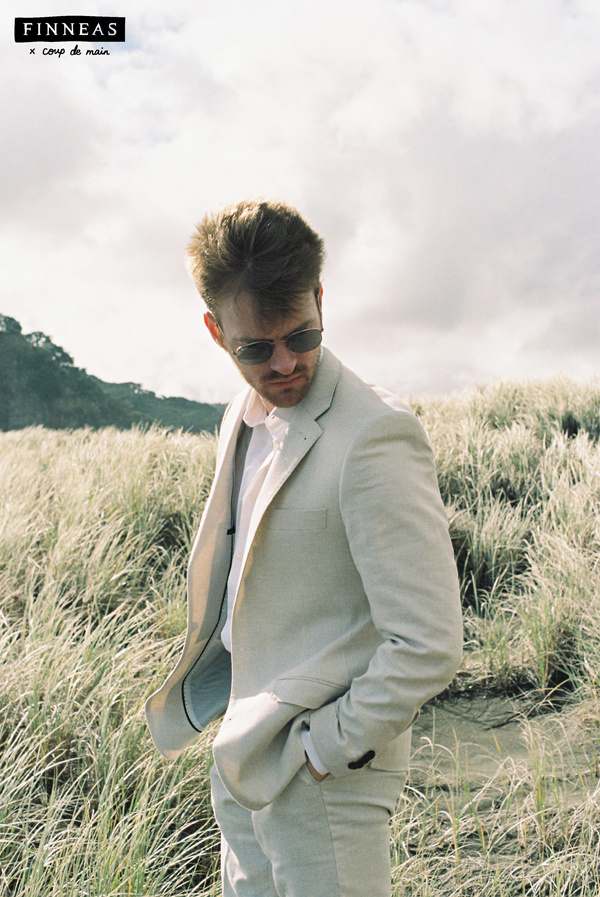
[Full suiting by Hallenstein Brothers.]
Speaking with excitement over the phone (while taking his pride and joy, a red Tesla through the car wash), O’Connell recently shared that ‘Shelter’ was initially written in 2016 for an Aviici project, but became a song he revisited after playing a number of live shows and considering how to expand his live repertoire. As well as playing in Eilish’s own touring band, O’Connell also opened for a number of her shows this year across Australia and New Zealand, giving a whole new perspective about the type of music he wants to be making.
When O’Connell was in New Zealand earlier this year touring with Eilish, we ventured on a trip out to Karekare Beach for a photoshoot, and caught up again recently at his Los Angeles home to discuss his plans for the year, the importance of honesty in songwriting, and much more…
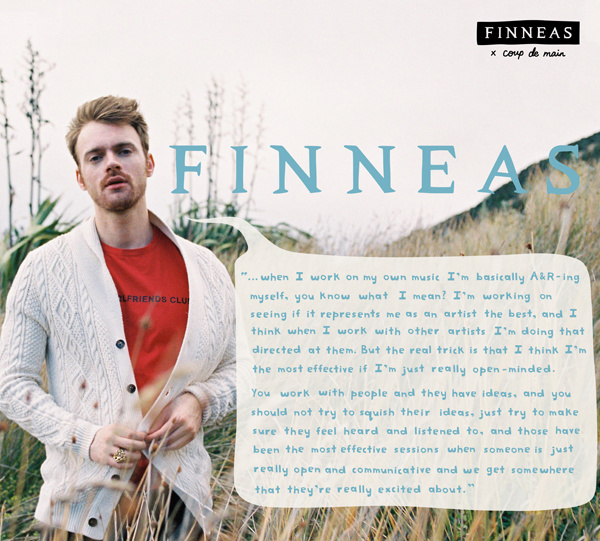
[Red Text Logo Classic Tee by Stolen Girlfriends Club. White Cardigan by Hallensteins.]
COUP DE MAIN: Last year you released several singles, but you’ve just announced that you’ll be releasing an EP soon. What made you decide that this was the right time to put out a proper body of work?
FINNEAS: I think I wanted to have something that represented me in a slightly more concrete way than singles do. I wanted to have a project that made somewhat of a statement, and I think an EP kind of bridges a gap to an album, and I think I’ll probably put out an album in 2020, so I wanted to make sure to get an EP in this year.
CDM: Did you write the songs knowing that they would be part of a cohesive project, or did they just happen to come together that way?
FINNEAS: I didn’t write them knowing they’d be part of an EP, but I did write them within a short time of each other, which I think help makes things cohesive. I was writing them with the same state of mind, which makes them feel like they’re in the same family, you know?
CDM: It’s interesting that you probably have enough songs that have been released as singles that could’ve been turned into an album, but instead they’re like little individual chapters in a book.
FINNEAS: I like that. How many are there? There’s thirteen, so there’s technically an album, but I don’t think it’s a very well structured album, so I’m glad that they’re singles and not an album.
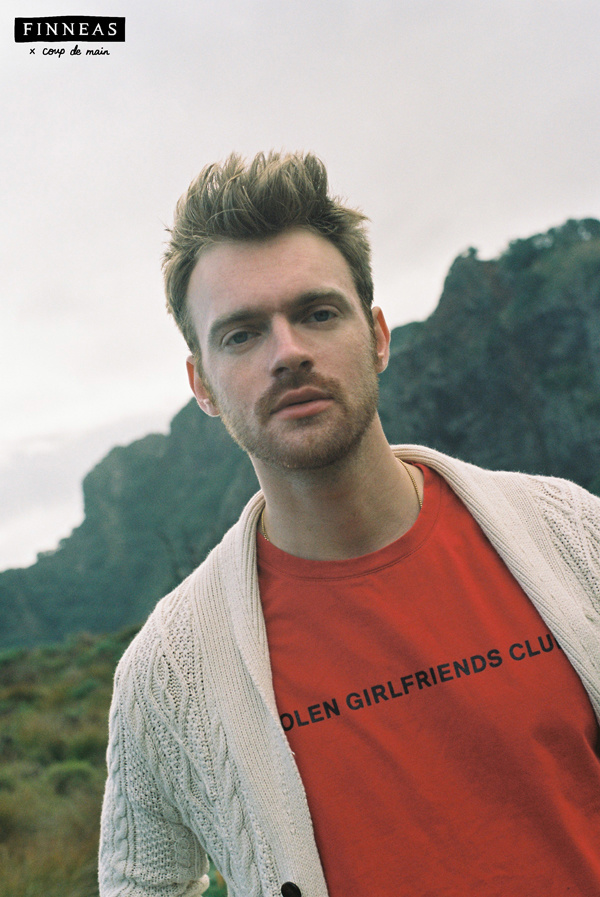
CDM: What can you tell me about your new song ‘Shelter’?
FINNEAS: ‘Shelter’ is a song I wrote a long time ago, I wrote it around the same time I wrote ‘Break My Heart Again’, which was in 2016. I wrote it to send to Avicii - I'd heard that he was looking for songs for one of his last couple of EPs, which obviously nobody knew were his last couple of EPs at the time, but it was a song that I wrote. Sometimes those songs are really liberating to write because I wasn’t having to etch my diary, the story of my life, into a song. I just had this thought, "I’d love to write a song called ‘Shelter’ and I want to see if I can make it quickly." <laughs> So I probably wrote the song in 45 minutes, recorded the demo, and then I fell in love with the song. It hit my voice in a really fun way to me, it was really fun for me to sing the demo, and it became this thing that I became very attached to. It’s honestly unclear whether or not he heard it, I had nothing beyond my really wonderful managers that anyone was hearing anything that I was doing at the time, but unfortunately, he passed away the year later. The song sat dormant until recently, I started to play live a lot, and I think when you play live a lot you start to understand what you want a lot of when you play, and I just had this feeling of, “I would love to do this song every day at a show.”
CDM: Is 'Shelter' on the EP?
FINNEAS: Yeah, it’s the first single from the EP.
CDM: Are any of the songs you’ve already released from the EP?
FINNEAS: There’s some debate about songs I’ve released previously being on the EP. I think likely one or two of them will be on the EP, but it’ll definitely be several new songs. I get really annoyed when people release an EP that’s only one new song. So there’ll definitely be more new songs than old songs, 100%.
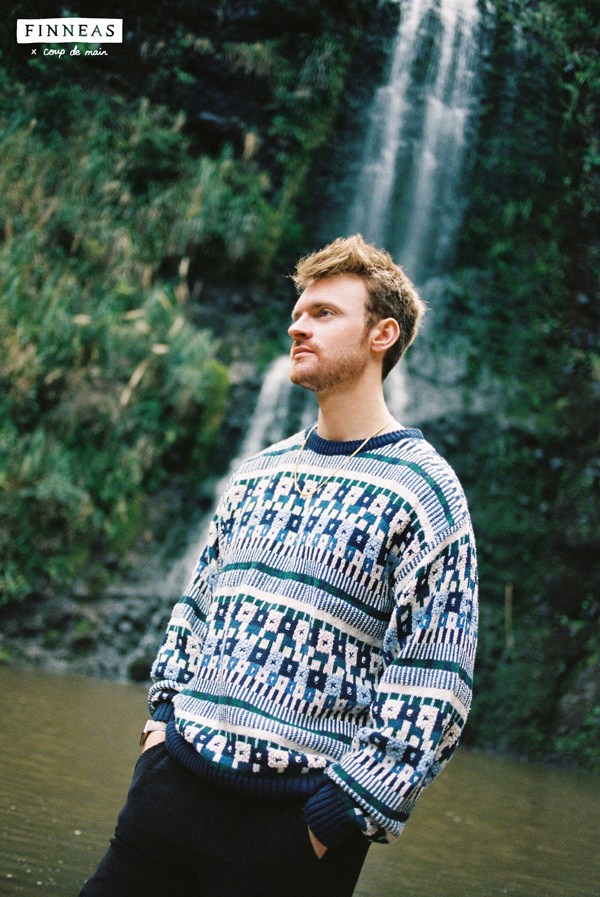
[Vintage Knit by magichollow.]
CDM: Last August you told us about so many writing sessions you’d done - Bruno Major, Kailee Morgue, Kehlani, etc. How have you found working with even more people since then?
FINNEAS: I learn from each person so much, and they’re each so different. I’m always surprised by how different everybody works and how much I learn from them. The fun thing to me is that it’s been a great source of friendship. I’ll spend one day with an artist and we’ll make something, and whether it comes out or not, or whether we even write something that day, I get to know people and then I love them and get to be friends - that’s been a really exciting side-effect of it. But I do learn a ton from every session I do, and I’m really excited about the sessions I have coming up in the next couple of weeks. I have some Sam Smith sessions, a John Legend session, and me and Lil Nas X have some stuff planned.
CDM: Do you have a different approach when working on other people’s music as opposed to your own?
FINNEAS: I do! What I always say is when I work on my own music I’m basically A&R-ing myself, you know what I mean? I’m working on seeing if it represents me as an artist the best, and I think when I work with other artists I’m doing that directed at them. But the real trick is that I think I’m the most effective if I’m just really open-minded. You work with people and they have ideas, and you should not try to squish their ideas, just try to make sure they feel heard and listened to, and those have been the most effective sessions when someone is just really open and communicative and we get somewhere that they’re really excited about.
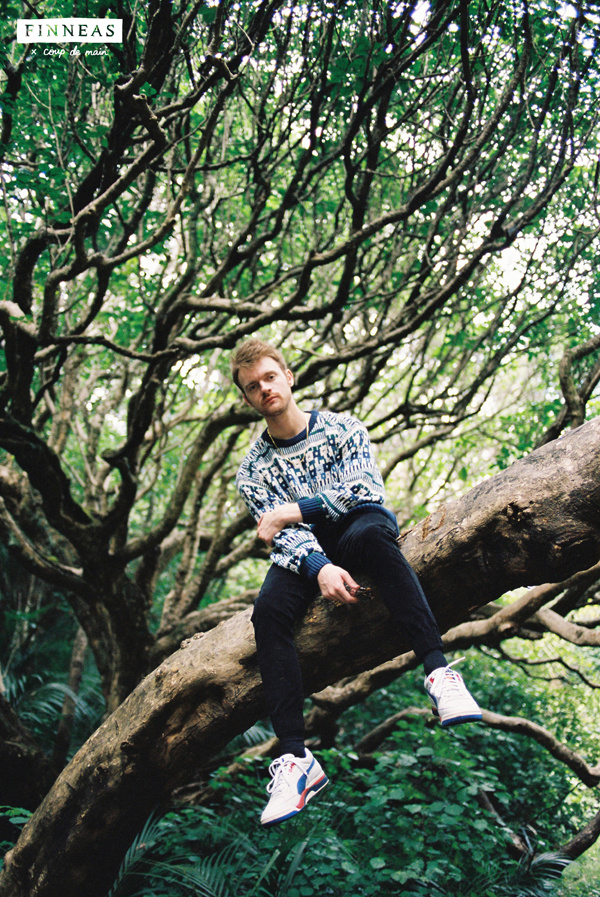
CDM: Who else have you been working with that you can tell us about?
FINNEAS: Up until the second you called, I was doing production on a Camila Cabello song that we wrote together last week.
CDM: I saw she tweeted your lyrics!
FINNEAS: She did! She did that in front of me. We were in a session and she was listening to ‘Claudia’, and she was like, “I love that, ‘I think you’re gonna change my plans’ line,” and then tweeted it. She is one of my favourite artists and people, and she’s unbelievably talented. I’ve been saying this a lot about her, which is that during the first couple years of doing songwriting sessions I so badly wanted to be of value, I wanted to have people think I was really good, that I was always, always coming up with ideas. I was just spitting out ideas all the time. I think that when I work with someone like Camila, who is so talented in and out of herself, the best thing I can do is be a good listener - and if she needs help, provide help for her, if that makes sense. I’ve been working with her. Who else did I work with? The one that I’m most excited about that I haven’t done yet is Lil Nas X, that’s just so unbelievably exciting. I also have some writing with Demi Lovato coming up in September, so that’ll be cool.
CDM: What’s your favourite part about songwriting in general?
FINNEAS: That’s a funny question. As far as Coup De Main goes, all the stuff is stuff you wanted to do, but I bet there are some days where you’re not doing anything you wanted to do, even though it’s all involving the magazine that you wanted to do?
CDM: Yeah, like the bits of it that you don’t enjoy.
FINNEAS: Which is such a weird feeling, right? So I think it’s like that. On a day where I get to write a song and I think the song is really good the day that I’m writing it, that’s really exciting for me. There are days where I have to track vocals, and I don’t really like tracking vocals very much, so those aren’t days where I particularly enjoy myself. Producing sometimes can be very arduous and hard, but sometimes you feel really clever, and you feel really good at your job, and those are days that I don’t take for granted - I’m very lucky to have days like that.
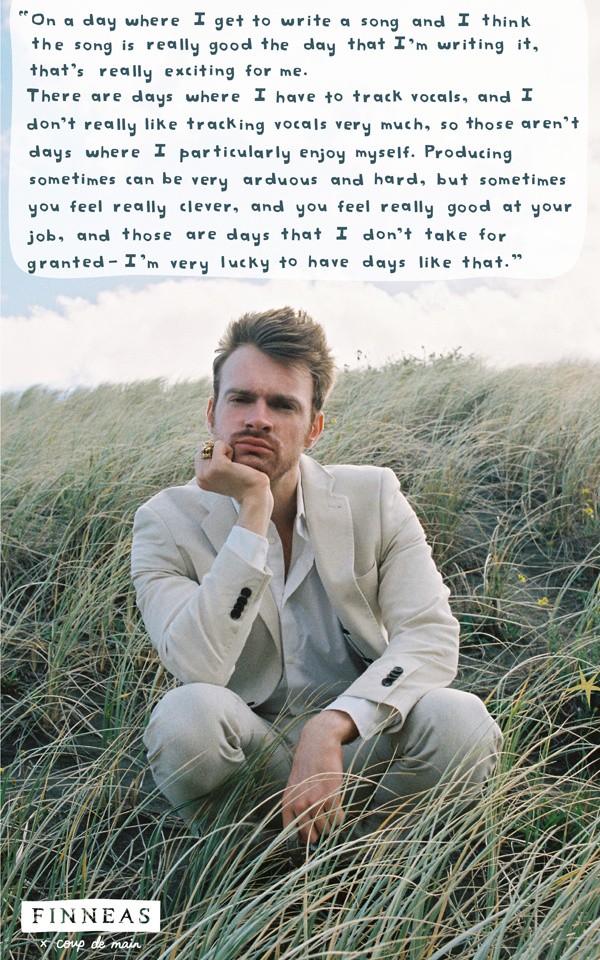
CDM: What do you find the worst part of being a musician?
FINNEAS: So I think my favourite part is the actual act of making music, I think that makes me feel really satisfied and creative; it makes me feel good about myself. I think probably my least favourite part is time-waiting - I feel like you have to do a lot of time-waiting in music. You have to fly somewhere, sit in a green room for hours, there’s a lot of stuff that makes you feel like you’re waiting around for things, and that period of time always stresses me out.
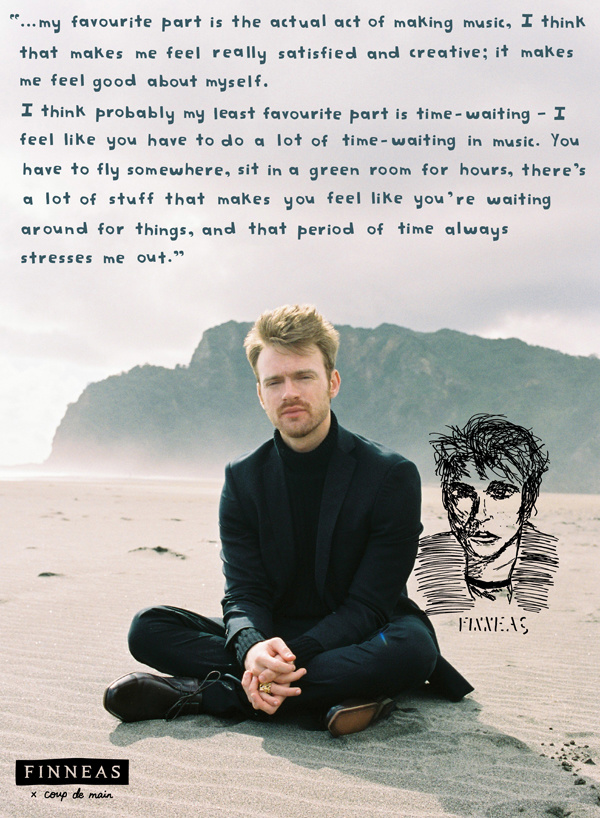
[Full suiting by Hallenstein Brothers.]
CDM: Your songs are always so personal - you’re literally giving listeners a piece of your heart with some songs. Does it ever feel scary when sharing those emotions so openly with people?
FINNEAS: Yeah. I was nervous putting out ‘I Lost A Friend’ because it was about a friend of mine whom I had sort of become friends with again, and I knew that he was going to hear it, so I sent it to him first to preface the song by saying, "This is how I was feeling at the time, and I’m glad to have you back in my life." That made me nervous. I just wrote a song about how my parents have both gotten very old, and it makes me sad. I feel too weird singing it, it feels too personal, so I had the artist Lolo Zouaï translate the song into French, and I’m going to put it out in French.
CDM: I didn’t know that you had reconnected with the friend you wrote ‘I Lost A Friend’ about - that’s a nice story to come out of the song. How did you find the experience of writing that song?
FINNEAS: I wrote the song when I started going to therapy last summer, and it’s a song I probably should have written sooner, but I didn’t, and when I finally wrote it, it was one of those songs that there was a lot of water build-up, it just poured out.
CDM: How have you found going to therapy in terms of dealing with your emotions, and then its impact on your songwriting?
FINNEAS: At first I was kind of worried that it was going to make it harder for me to write because I would be resolving my issues and then I wouldn’t have anything to write about. I’ve found that it doesn’t seem to interfere with my ability to write songs about emotions that I feel, it just makes me feel more level-headed. But I don’t want to lie, I haven’t been to therapy in a couple of months now because touring has been so crazy, so I’m hoping to start back up soon, but I don’t want to falsely advertise - I haven’t been in a while, and I should go back.
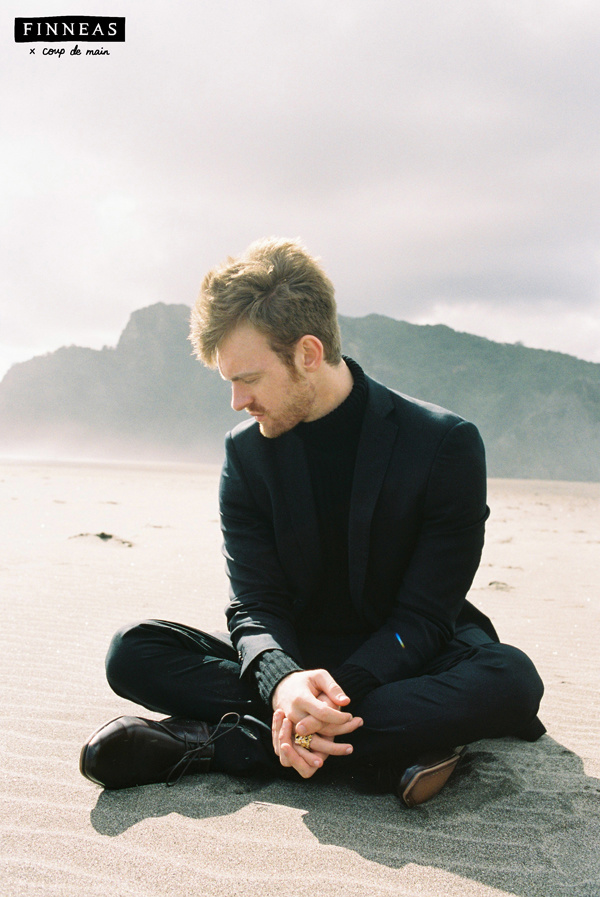
CDM: The line, “Like time worrying about / Every bad thing that hasn't happened yet,” is quite a relatable sentiment - I feel like our generation, in general, is more anxious about the world around them. Is that something you can relate to?
FINNEAS: The world around me for sure, but also on a personal level, any perfect day I have been stressed about the Saturday coming where I have some stuff to do. It’s a bad trait of mine, I feel like I’m always worrying about the future.
CDM: The chorus touches on the belief that if you make a lot of money, you can’t possibly be anything except happy. Do you think that belief is a dangerous societal construct?
FINNEAS: I don’t know that it’s necessarily dangerous, I think that the issue is that most people’s struggles are financial. Not that people who have financial struggles don’t also have struggles with their family relationships and their loved ones, illness, or whatever - everyone has a ton of struggles - but I think a lot of the daily struggles that I grew up with as a middle-class person, or a lower-class, I didn’t really know I was lower-middle-class until I grew up, but I was, it’s like having to work a job you don’t like to make sure that you have money to pay your mortgage or pay your car, or even just pay for food. So I think that when people are struggling with things like that and hear from a person who’s not struggling with money, ‘My life is so hard,’ it’s very hard to take. I do empathise, and it’s more of a comment on my own guilt about feeling bad. About feeling like, 'I am so lucky, I am in such a wonderful position in my life, and I still have days where I’m really sad and it feels inappropriate to not just be overwhelmed with gratitude at all times.'
CDM: Money aside, it’s hard for a person to be happy with their life all the time - it’s just never going to happen.
FINNEAS: Yeah. Bill Gates probably wakes up sometimes and has a headache all day, and that’s just a shitty day even though he has $150 billion dollars or whatever he has.
CDM: Celebrity culture as well, places you on a pedestal where it's assumed that you have a perfect life.
FINNEAS: We were flying home yesterday from New York, and Billie was in the row in front of me on the plane. She was sleeping in her seat with headphones in and two girls came up to ask for a photo with her and woke her up. I don’t think you would do that to a friend of yours; I don’t think you would wake someone up on an airplane and bother them if they were somebody that knew you. It was crazy to me to watch them do that to a stranger.
CDM: There’s a sense of entitlement because you see them online in the public sphere.
FINNEAS: It’s like celebrities are public servants or something. It just made me frustrated as her brother to watch that happen.
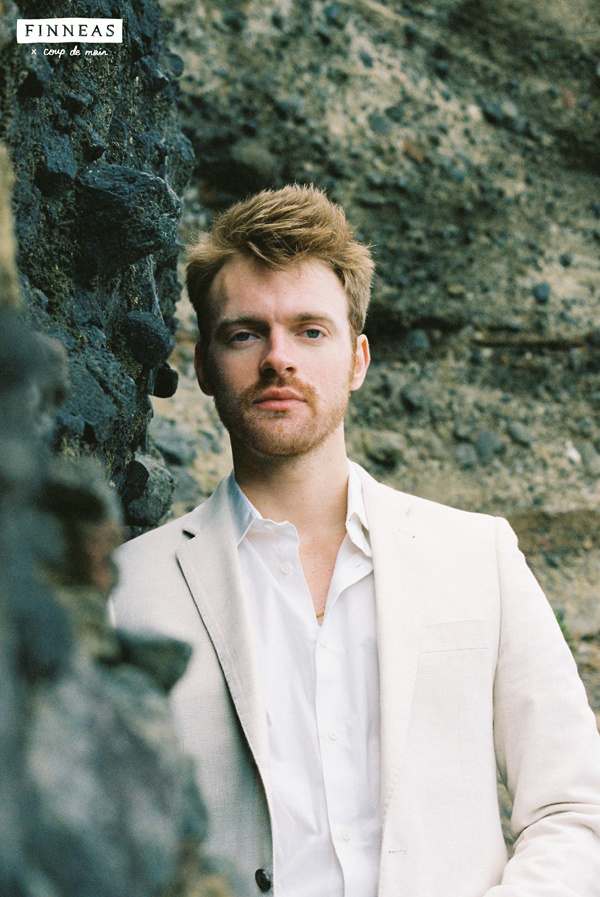
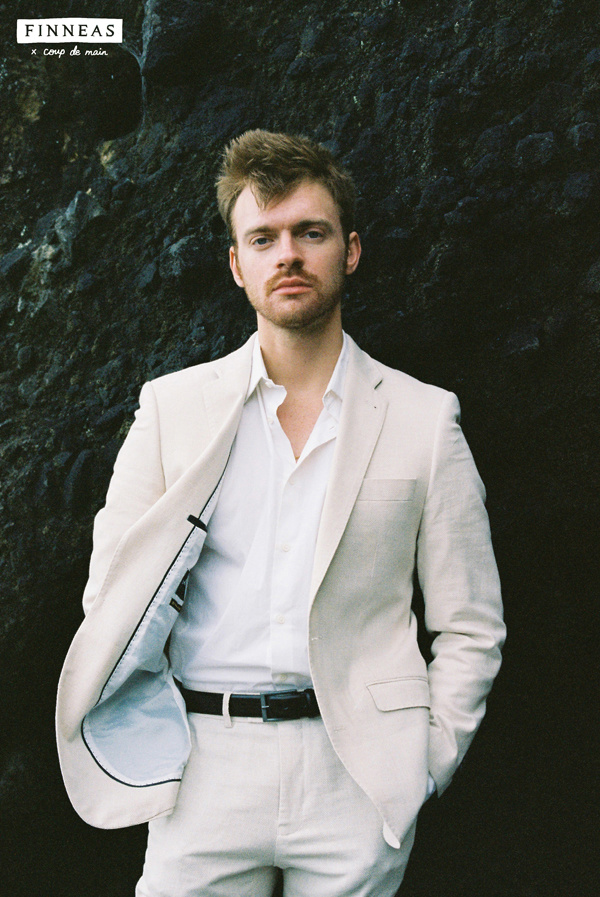
CDM: Do you think that love is the strongest human emotion?
FINNEAS: It’s certainly the strongest emotion in my life, and I think love broadens every relationship I have. ‘I Lost A Friend’ is still a love song even though it’s not romantic. I think, to me, there’s a magnetic pull with that - if I want to sit down and write a song about the political system in the United States and how displeased I am with it, I have to really make that decision and then try to do it. If I sit down with no agenda I pretty much always write a song about love.
CDM: How do you think your understanding and concept of love has changed over the past few years?
FINNEAS: I think my understanding and concept of empathy towards others has changed, and so my ability to put myself in other people’s shoes and to understand what other people are going through has changed, so I feel like I’ve become a little bit less offended by things. I’m not a person that’s offended by everything, but when you’re young you take a lot of other people’s behaviour as slights against yourself. I feel like people are always telling me, ‘This person did this thing, and they didn’t even think about me.’ It’s like, most people are not thinking about you, they’re mostly just thinking about themselves. You can be bothered by that all the time or you could just understand that you probably do that too. There are probably other people who are thinking the same thing about you.
CDM: Humans are inherently selfish in a way.
FINNEAS: Yeah, it’s survival. You have to put on your oxygen mask before your kid.
CDM: I can tell you’ve just been on a flight.
FINNEAS: I’ve just been on a flight for the past two years.
CDM: Do you still pay attention to the safety demonstration?
FINNEAS: Absolutely not, I know that I’m going to die if the plane goes down. I heard a podcast where these guys talked about counting how many rows to the nearest exit and I thought that was pretty good. They said if you crash-landed and the plane didn’t explode and you didn’t die, it’d probably be full of smoke and the power would go out so you wouldn’t see anything, so you’d need to feel headrests to get out of the plane. That seemed pretty logical, so I thought if that was the reason I died, I feel like I would’ve died an idiot.
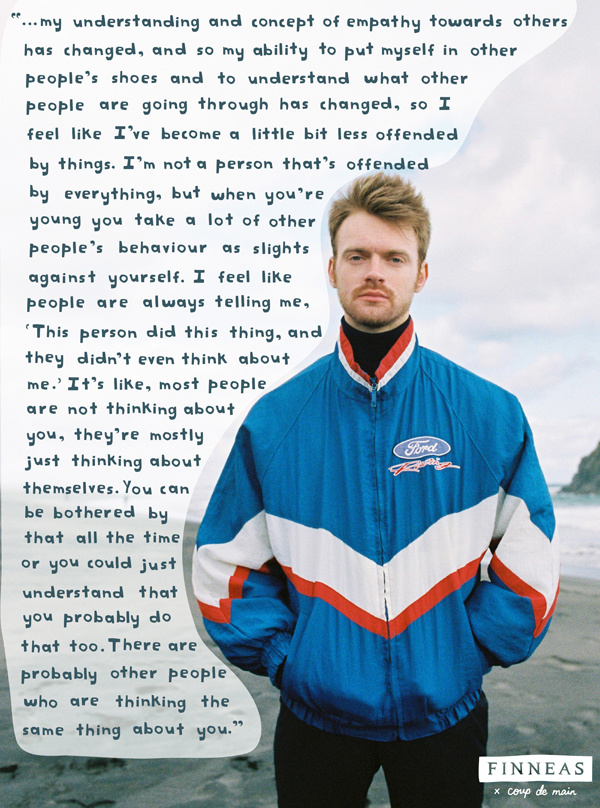
[Ford Racing Jacket by magichollow.]
CDM: How did you find the run of shows opening for Billie, as well as playing in her band?
FINNEAS: I didn’t really think about it when I did it, but I thought about it every day after I did it, because I didn’t open on this past tour in the U.S. It was really exhausting and really wonderful, but it helped my music a ton - I think a lot of people heard me for the first time, and obviously her audience is amazing and I had the best time. But I realised recently that while doing it, I would go out on stage to start Billie’s show already tired. So now that I’m not opening and headlining, I go out to do Billie’s show and I’m just amped and so excited.
CDM: The production on the tour with the bed is so cool!
FINNEAS: Thank you! I’m sad we didn’t get to bring it to New Zealand - it’s so frustrating, doing stuff like that anywhere is really expensive, but transporting it overseas, you just lose so much money that we couldn’t do it.
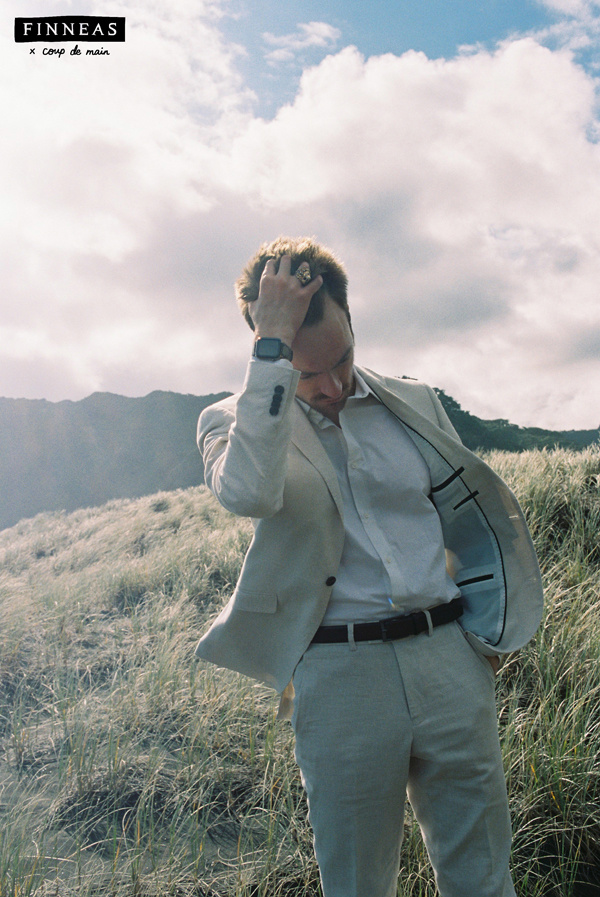
CDM: Are you looking forward to going on your own tour for the EP?
FINNEAS: I am, I have to figure it out. I have to figure out how to do the show that I’m seeing in my head, and I need to start having meetings for that because I don’t think it’ll be in October, but October in terms of actual planning is just around the corner. I’m excited, it’s very short, it’ll be like five or six shows.
CDM: That’s kind of nice, you don’t have to go on another long tour.
FINNEAS: Yeah, I mean, I didn’t want to. They were like, “How long do you want to go on a solo tour?” I was like, “I want to do five shows.” They were like, “How long do you want to be gone?” I was like, “I want to be gone a week.”
CDM: At the end of June you tweeted: “Fuck all that law of attraction bullshit, just work your ass off.” Do you think hard work is undervalued in today’s society, where so much of what happens in life is blamed on outside factors?
FINNEAS: I think hard work is pretty valued. Have you heard the term 'hustle porn'?
CDM: I haven’t.
FINNEAS: It’s the glorification of, ‘Oh, I only slept for an hour last night. I drank 7 coffees and I’ve worked for 17 hours straight.’ You know when people post stuff like that on Instagram? It’s called 'hustle porn', that’s the technical term, and the point is that it’s really unhealthy. If you’re not sleeping enough, you’re not as productive. If you’re overworking yourself, it’s a bad way to live your life. What I was getting at with the law of attraction thing is that I don’t like the idea that people are waiting around for stuff to happen that they’re not going to make happen. The best thing was that I got a response tweet which was like, "You are the definition of the law of attraction," and I was like, "Don’t discredit my hard work."
CDM: It kind of makes it seem like you aren’t hard-working, that something was just given to you.
FINNEAS: Yeah, or that you just manifested it. My girlfriend, whom I love dearly, totally believes in the law of attraction - and that’s one of the reasons you should date someone, is that they have different world views than you, and you evolve and you both talk about it and why you disagree, and your life is better because of it. I just don’t personally believe in it. I definitely believe in luck and coincidence - I don’t think that everything I’ve gotten is because I’m so amazing, I think I got really lucky in a lot of ways. I definitely was in the right place at the right time and put out the right song. I can’t take that much credit for it. But the law of attraction kind of makes it sound like you can make anything happen.
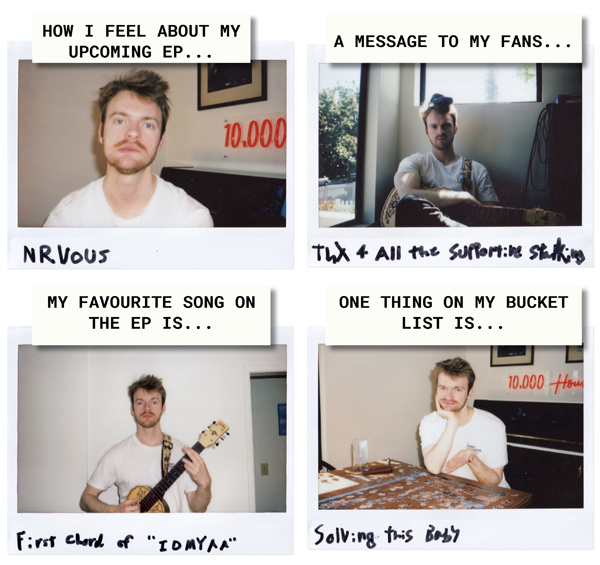
CDM: I had no idea you were the voice of Liam on ‘Fallout 4’! Did you enjoy doing voice work?
FINNEAS: <laughs> I did enjoy it. I think it was in 2014 and 2015, and get this, they wouldn’t tell me what game I was doing voiceover work for. So I didn’t know until right before it came out. I grew up doing a lot of voiceover work, I was the dinosaur guide in ‘Walking With Dinosaurs’. I like it, I feel like talking has always been a thing-- I’m a pretty good reader, reading aloud, and speaking. There’s no pressure in voiceover work, you go in wearing whatever outfit you want, and you talk for four hours. It’s a pretty sweet gig, I would love to do more of it in the future, but it’s also cool because I grew up playing video games, so it’s cool to say I was in a video game.
CDM: What are your thoughts on spoken word in songwriting?
FINNEAS: I have not been brave enough to do spoken word in a song - that really intimidates me. It becomes really pretentious, really fast. There’s definitely a lot of songs that I think would age really well except the spoken word bit that makes it really corny. My favourite spoken word is at the end of the Childish Gambino album ‘Camp’ - he has that story about the summer camp bus, and it’s great.
CDM: What’s your key to keeping your production sparse?
FINNEAS: Usually it’s subtracting things. I throw a bunch of stuff at a song, put synths on, keys on, a bunch of vocals on, drums on - and then I see how much of it I can take off and still have it stand on its own. It’s kind of like building a dining table, with the tabletop on the ground and you put the legs on it and you flip it over to see if it stands, and you started with ten legs, and then you busted legs off until you got down to three. This table can stand on three legs.
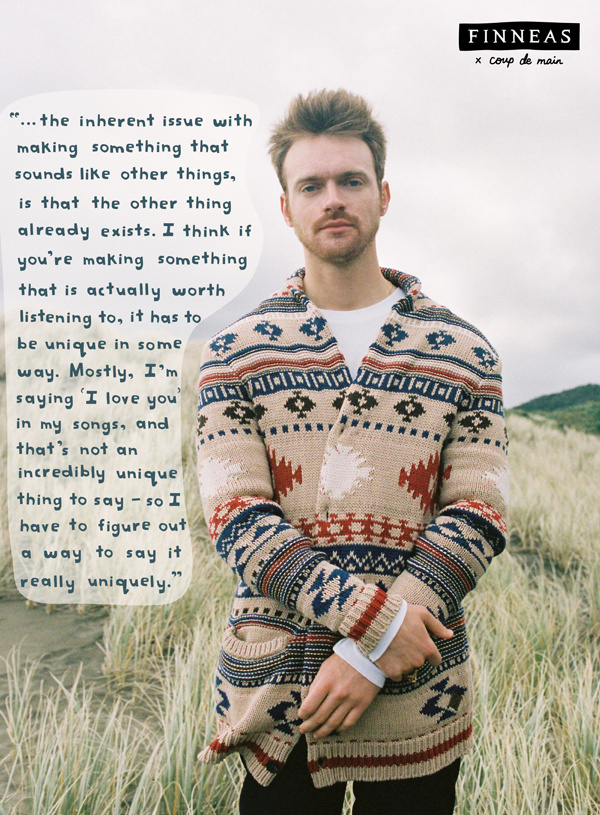
[Park Carlos Cardigan in Tan by Hallensteins.]
CDM: You tweeted, “I stopped referencing other people’s music when I produce two years ago. Do with that information whatever you like.” Why is originality in music so important to you? How do you find originality?
FINNEAS: Because I think it’s the only way to guarantee that you’re making something of value. That’s the inherent issue with making something that sounds like other things, is that the other thing already exists. I think if you’re making something that is actually worth listening to, it has to be unique in some way. Mostly, I’m saying ‘I love you’ in my songs, and that’s not an incredibly unique thing to say - so I have to figure out a way to say it really uniquely.
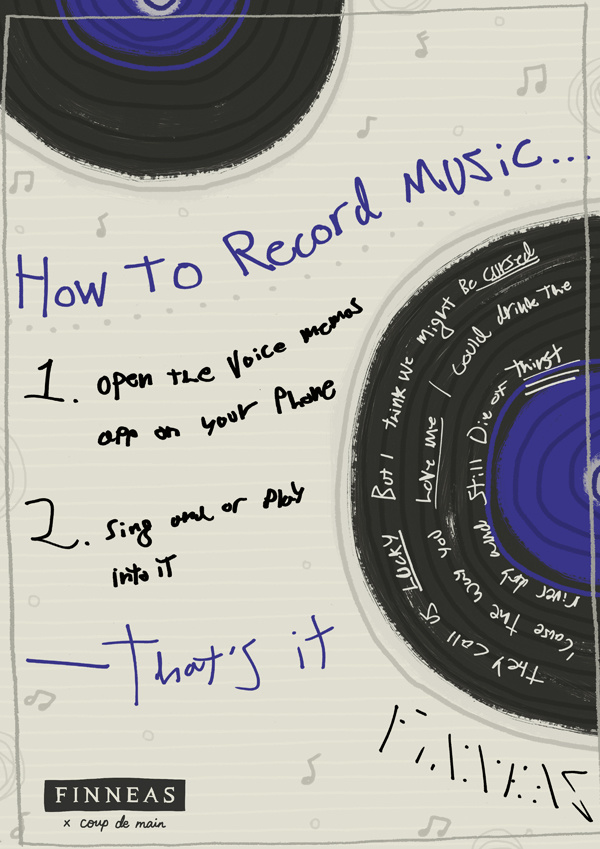
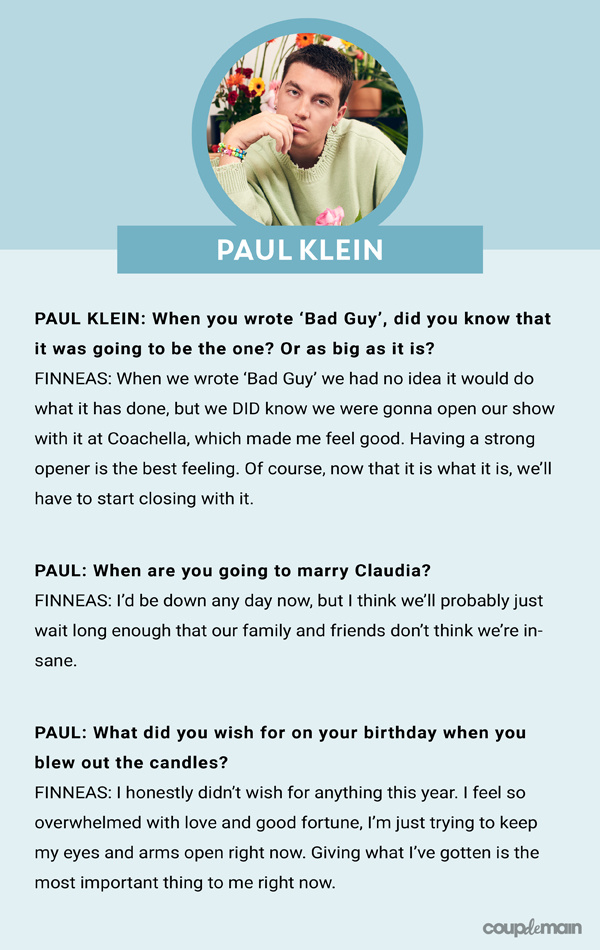
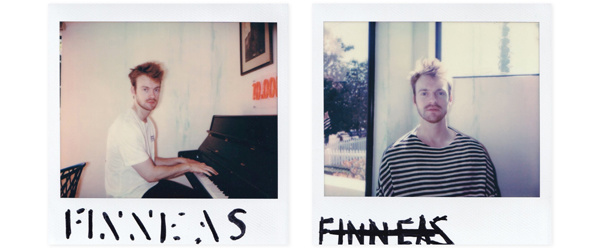
FINNEAS’ new single ‘Shelter’ is out now and his debut EP ‘Blood Harmony’ will be released on October 4 - listen to ‘Shelter’ below:


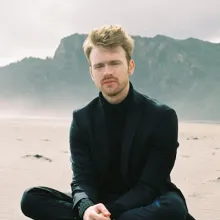 Finneas
Finneas